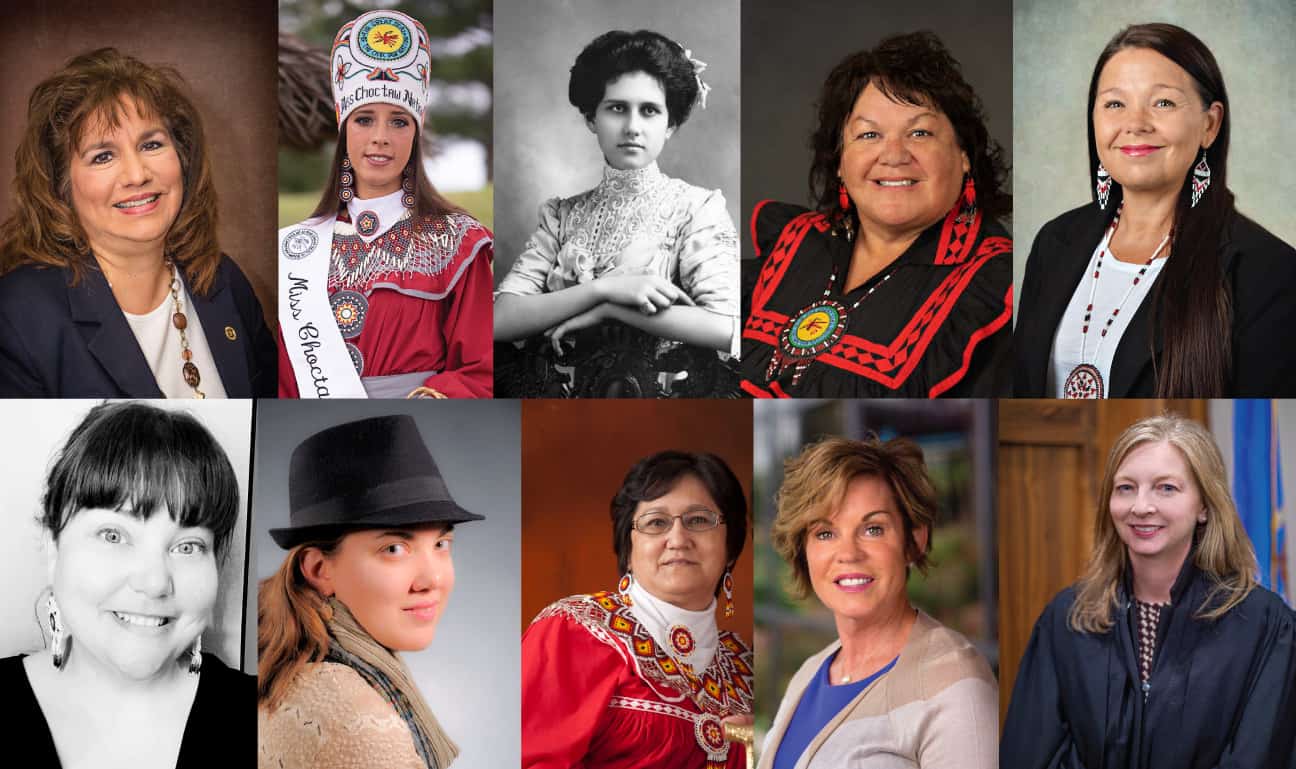
Highlighting Chahta Ohoyo Hlampko Vhleha (Strong Choctaw Women) this Women’s History Month
Published March 1, 2023By Kendra Germany-Wall and Shelia Kirven
March is National Women’s History Month. This story will feature several influential Choctaw women who have made a mark on the world.
Before colonization, women held positions of great respect, esteem and power in Choctaw society. Women were recognized as the givers and supporters of life. Men could hold leadership positions, but they worked alongside women with equal say.
Even today, Choctaw women continue to shape the world in all aspects of society, regardless of gender norms and stereotypes.
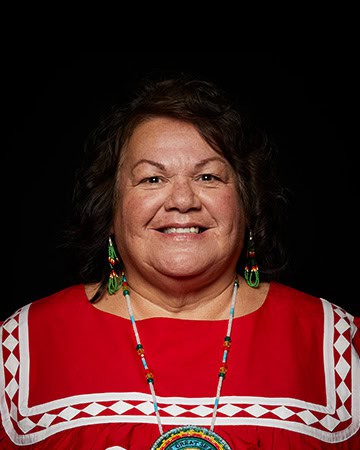
Leaders
Jennifer Woods, District 6 Councilmember, sworn into office in 2017, is the only woman currently serving in the Choctaw Nation of Oklahoma (CNO) Tribal Council and one of eight women who have served on the Council since 1980.
The seven former female Tribal Councilmembers include Harriet Wright O’Leary of District 6, Lillian Sullivan of District 11, Edna Belvin of District 8, Lu Bauer of District 12, Dena Cantrell of District 11, Lois Burton of District 4 and Charlotte Jackson of District 5.
Woods worked with Councilwoman Jackson, who was a significant influence on her.
“I think I have a lot to bring to Council as a woman,” said Woods. “I often have a different point of view, and with our discussions, we arrive at a good place. The Councilmen and I work well together because our common goal is the people and the needs of the people.”
At age 13, Woods went to live at Jones Academy (JA), an American Indian boarding school owned by CNO, located near Hartshorne, Oklahoma. She graduated from Hartshorne High School in 1977 and attended Eastern Oklahoma State College and East Central University, where she graduated with a bachelor’s degree in human resources in 1983. Woods began working at JA as a student counselor in 1986 and was later promoted to Director of Indian Child Welfare, where she worked for nine years. Woods also worked as the Community Based Social Work Director before filing for office.
Woods is thankful for the opportunity she has to serve on Tribal Council.
“It’s a privilege that I don’t take lightly,” said Woods.
Overall, Woods believes the most rewarding feeling is seeing the Nation’s growth, making a difference to improve the quality of life for the Choctaw people and continuing the mission of those who came before her.
“It’s a blessed feeling, and thinking of the sacrifices those before us made, just makes me work harder.”
One of Woods’ inspirations is her grandmother Classie Alberson Wallen, a first-language Choctaw speaker who spoke broken English.
“As a very young girl, I read letters to her from Social Security and responded for her. I walked across town to go pay her bills for her, stood in line with her at the county barn to receive cheese and other staples, mowed the yard and helped do the laundry in a wringer washer every Saturday. We didn’t have much money at all, but she always said ‘You can be clean and take care of what you have even if its only a little.’ She sewed my clothes on her machine, and she quilted blankets in the living room,” said Woods. “She taught me to work hard and do the best job I could and to be kind to people. She always said people have it way worse than we do, so be grateful. She was proud to be Choctaw.”
Woods’ mother was also resilient and a proud Choctaw artist who inspired her to be the woman she is today.
CNO also has three women serving as Senior Executive Officers (SEOs). Janie Dillard, Tammye Gwin and Teresa Jackson work at the top level of operations and make vital decisions regarding gaming, tribal services and business.
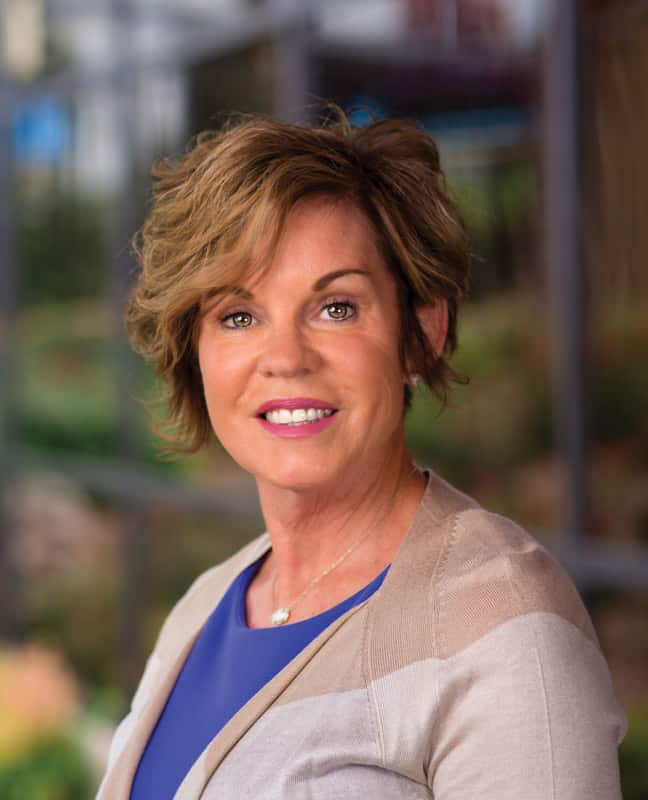
Janie Dillard has been with CNO since 1987, when the tribe began its journey into gaming. A modern-day trailblazer, Dillard set her roots in the gaming industry as a floor manager and was quickly promoted to director for CNO’s first bingo hall. By 2001 she was promoted to Executive Director of Gaming, managing CNO’s State gaming compact and opening four casinos, including the flagship Choctaw Casino & Resort in Durant.
“When I started with the Choctaw Nation in 1982, we had 100 employees and could barely make payroll from month to month,” said Dillard. “Today, we are a thriving nation that has so many exciting opportunities before us. I am glad I have had the opportunity to watch this organization grow and develop before my eyes. I am blessed and humbled to be part of the Choctaw Nation.”
Known for her confidence in steering the tribe’s gaming operations in a male-dominated field, Dillard has moved up the ranks, becoming Senior Executive Officer for CNO’s Division of Commerce in January 2018. In this role, she oversees 21 gaming sites, 17 travel plazas, three resorts, three country markets and Choctaw print services, providing strategic guidance and optimizing the Nation’s revenue-generating businesses.
Dillard encourages women who aspire to be leaders to challenge their comfort zone. “First and foremost, don’t be afraid to step out of your comfort zone and be committed to making life better for those around you. Also, if you make a mistake – own it. Throughout your career, you will make many mistakes, and it’s important to own those mistakes and learn from them,” said Dillard. “I am a woman working in a man’s world and have made a path for myself and other women in the gaming industry. I am passionate about what I do, and I love living the life I do every day. It’s what drives me. I start every morning with a daily devotional, which I share with friends on social media. This devotional is what guides me through the day. My motto is to let God guide you, and you will find your passion.”
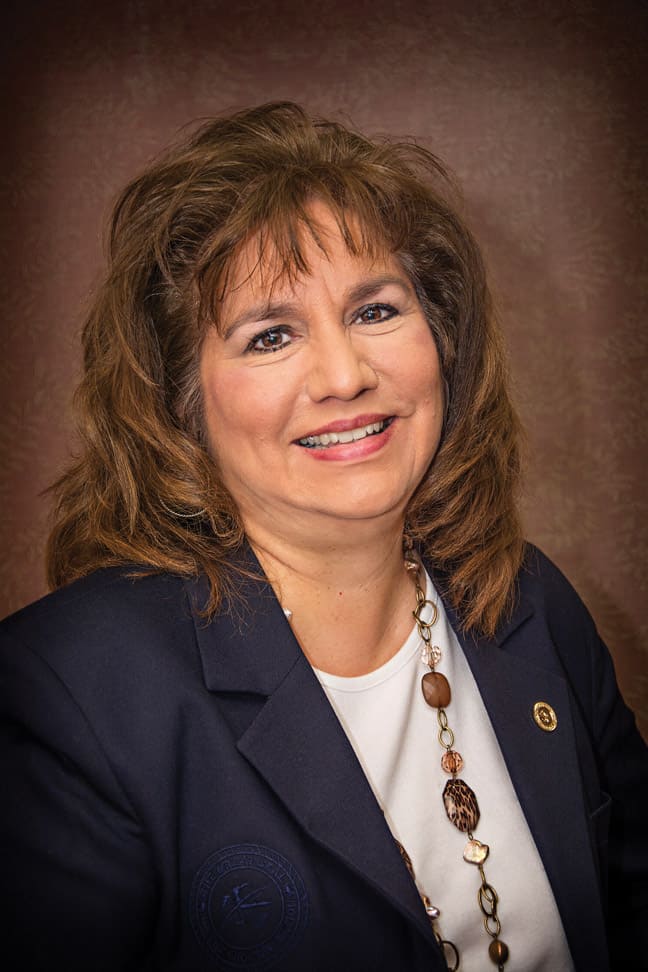
Teresa Jackson began working for the Choctaw Nation in October 1999, shortly after what is referred to as the “new” hospital in Talihina opened.
At that time, she was responsible for the budget of the hospital and clinics. Jackson then moved to the business office and was over third-party billing for the entire health system. She went on to become the hospital administrator from 2007 to 2013. In 2013, Jackson became the SEO of Health Services and moved on to become the SEO of Tribal Services.
Jackson is thankful for the people she has met and the relationships she has formed along the way.
“It’s been rewarding to go in and help people and to know that you may have changed somebody’s life at the end of the day,” said Jackson.
Currently, Jackson is over all tribal services for CNO, including Health, Housing, Education, Culture, Outreach and Special Services. According to Jackson, that’s around 144 programs and 3,200 employees under her direction.
As one can imagine, Jackson is a busy woman. She has some advice for young women who aspire to be leaders someday.
“First and foremost, family is always first,” said Jackson. “Make sure that we always devote time for ourselves and our family.”
Jackson suggests that anyone looking for a career path follow their dreams and consider job shadowing. “Sit and visit with other women who are in the roles that they are looking at to see what it’s actually like and if that is something they really want to do.”
Jackson is impressed by the number of women taking on leadership roles within CNO.
“I’ve seen so much growth in the Tribe and the number of employees and women who are moving up and wanting to take on those responsibilities,” said Jackson. “As women, we have a seat at the table. We have just as many women (at CNO) in top leadership as we do men.”
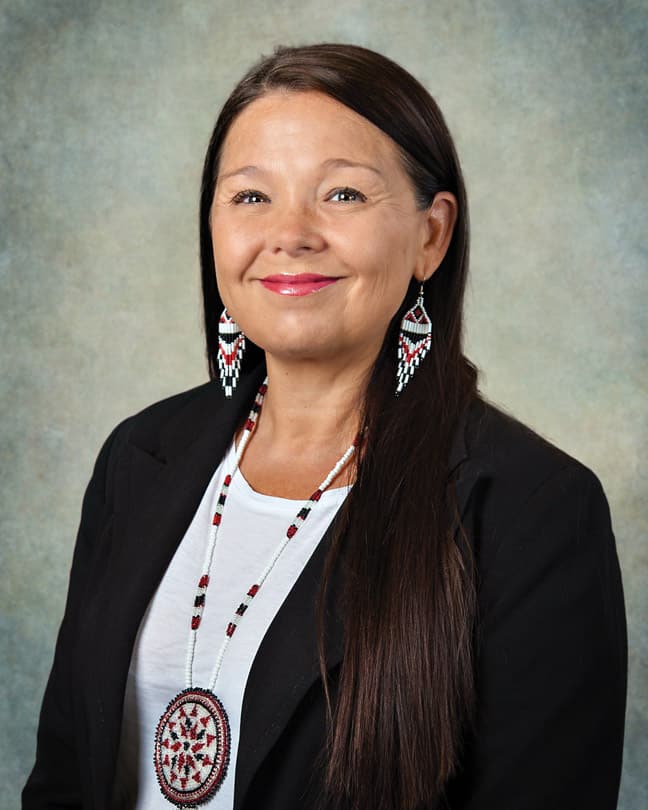
Tammye Gwin is the Executive Director of Strategic Development for CNO. She has worked for the Tribe her entire career, beginning at what was Choctaw Bingo while a student at Southeastern Oklahoma State University.
During her career, she has been part of the team that expanded Choctaw Casinos into one of the largest gaming operations in the United States today.
In 1995, she participated in lobbying efforts for legalizing Class III Indian Gaming in Oklahoma. For 10 years, she served as one of the founding committee and tradeshow coordinators for the first Oklahoma Indian Gaming Association (OIGA) Tradeshow and Conference. Gwin also received the OIGA Chairman’s Award in 2008 for her commitment to Oklahoma Indian Gaming.
In 2014 she joined the Choctaw Business Development department. As Senior Director and Executive Director, she led Business, Economic and Small Business Development (ESBD), Tourism and Commercial Leasing. In 2019, she was appointed Senior Executive Officer of Strategy, where she continues to lead ESBD, as well as the Strategy, Reporting and Analytics and Operational Excellence programs.
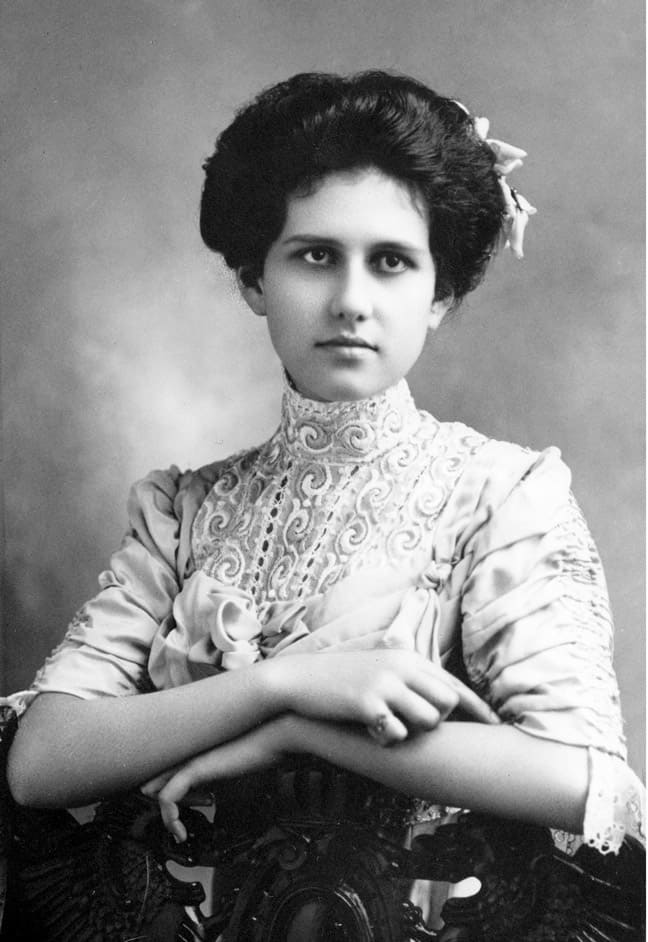
Dr. Muriel Wright, Historian
History Makers
Throughout time, there have been numerous Choctaws who have accomplished extraordinary things. This story only has room for a few examples of Choctaw women making history.
Dr. Muriel Hazel Wright was a teacher, historian and editor.
Born in 1889, Wright was well-educated. She went to Wheaton Seminary (Wheaton College) in Massachusetts, graduated with a teaching degree from East Central University in Ada and did her postgraduate work at Columbia University in New York.
Her paternal grandfather was Rev. Allen Wright, Principal Chief of the CNO from 1866 to 1870, who is credited for giving the state of Oklahoma its name.
Wright served as a teacher and principal in Oklahoma. She also actively participated in CNO policy making, serving as Secretary of the Choctaw Committee, a member and secretary of the Choctaw Advisory Council and a delegate to the Intertribal Indian Council.
She was the editor of the Chronicles of Oklahoma from 1943 to 1973 and authored numerous history articles and features that appeared in newspapers and magazines nationwide.
Wright authored the historical works listed below:
“The Story of Oklahoma” (1924-1939)
“Oklahoma: A History of the States and Its People” (1929)
“Our Oklahoma” (1939)
“Springplace, Moravian Mission, Cherokee Nation” (1940)
“A Guide to the Indian Tribes of Oklahoma” (1951)
“Civil War Sites in Oklahoma” (1969)
“A Guide to the Indian Tribes of Oklahoma” remains a standard reference for studying the state’s indigenous people.
Wright was inducted into the Oklahoma Hall of Fame in 1940. She received the University of Oklahoma’s Distinguished Service Award citation in 1948, the Oklahoma City Business and Professional Woman of the Year Award in 1950, Oklahoma City University’s honorary doctorate of humanities degree in 1964 and the National American Indian Women’s Association Award in 1971. In 1993, the Oklahoma Historical Society launched its Oklahoma Historians Hall of Fame, and Wright was among its inductees.
After retiring in 1973, she continued to pursue research projects until her death on February 27, 1975.
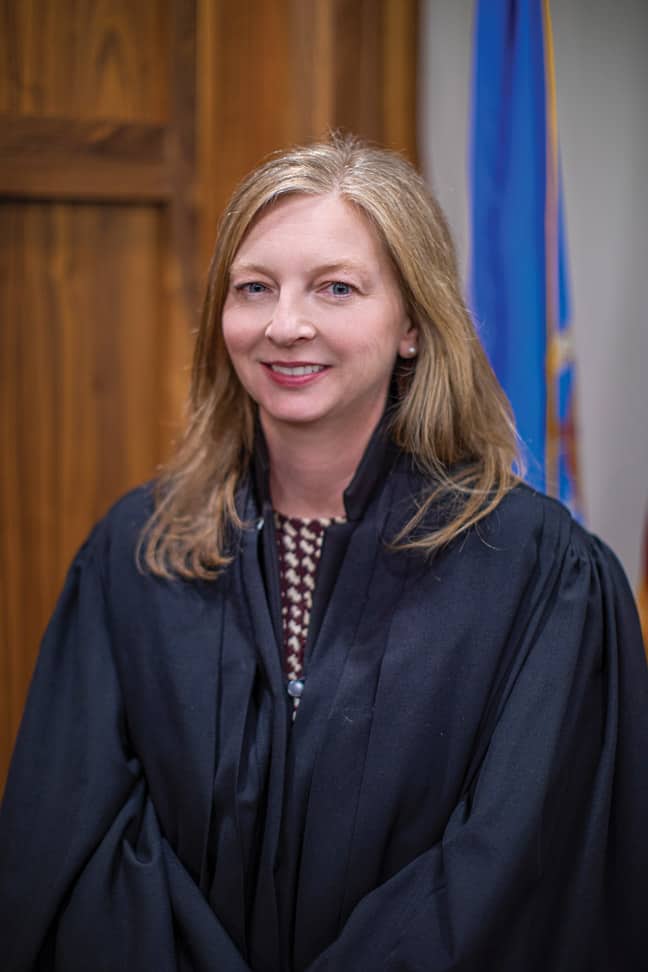
Amy J. Pierce was appointed as the first full-time district court judge for CNO’s judicial branch in 2022. Choctaw Nation Chief Justice David Burrage performed her swearing-in at the Choctaw Nation Judicial Center.
Judge Pierce’s experience in Native American law has greatly benefited CNO in the post-McGirt world.
Before CNO, she was partner at Hampton Barghols Pierce, PLLC in Oklahoma City (OKC) and held positions with two other law firms in OKC. Judge Pierce earned her Juris Doctorate from Oklahoma City University after receiving her Bachelor of Science from Oklahoma State University. She went on to complete the Harvard Negotiation Institute program through Harvard Law School. Judge Pierce has been voted a “Top 25 Women in Law” in Oklahoma by Super Lawyers, among other honors.
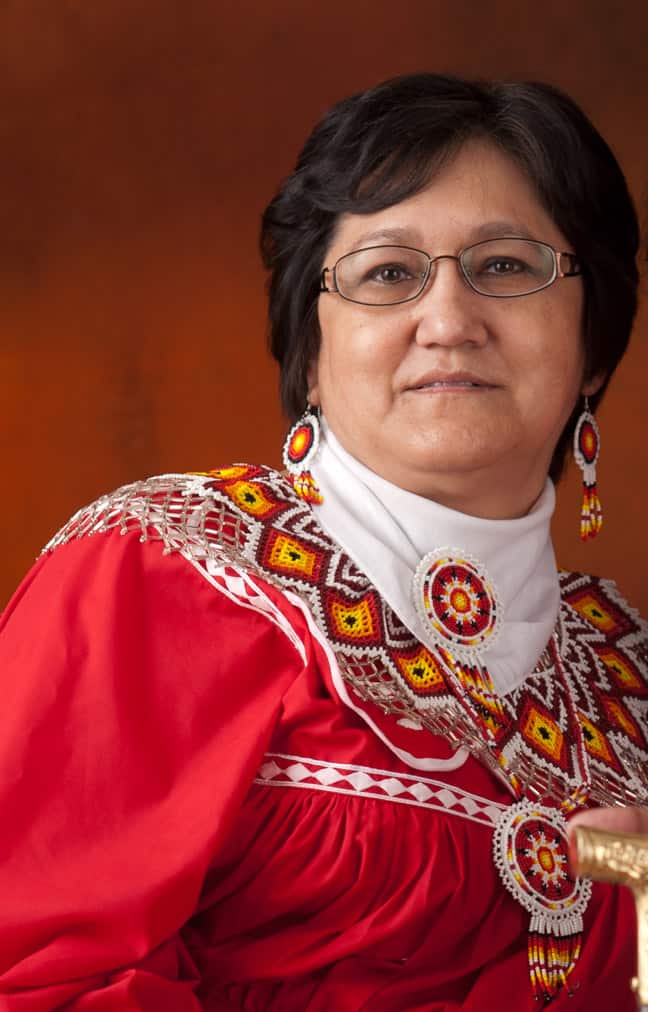
Culture Keepers
Within the Choctaw Nation, many departments and individuals are working hard to preserve the culture and language of the Choctaw people for future generations.
Teri Billy is the Assistant Director of the Choctaw Nation School of Language (Chahta Anumpa Aiikhvna).
The Choctaw School of Language began with a pilot program teaching Choctaw to five area high schools and Head Start Centers to now holding over 100 courses in high schools, colleges and Head Starts and over Zoom.
Billy began her journey with CNO’s language department in 2004.
At that time, the department’s goal was to revitalize the Choctaw language, a long process that brought with it the challenge of creating textbooks, classes and curriculum.
Being a curriculum specialist was a skill that came in handy in the program’s early days as Billy and other staff worked together to create textbooks, tools and kits to be used in the classroom.
According to Billy, it is essential to protect the identity of the Choctaw people by preserving their language.
“It is as important for each of us, as well as for our future generations, to connect us to our mother tongue, which relates us to our rich history, culture and language,” said Billy. “This is important to our identity as Choctaw people.”
“My hope is to see a language fire catch ablaze within the communities of the Choctaw Nation, to take the language back and make it alive in the daily lives and homes of Choctaw people,” said Billy.
Billy’s Choctaw roots run deep, and she credits some of that to her grandmother, Fannie Gibson, the most significant female influence in her life.
“She instilled in me a strong faith and belief in the principles of God by living it out daily in many life examples,” said Billy. “The Choctaw way of life was very important to my grandmother. She never learned to speak English, but would not hesitate to stand her ground, to stand for what was right.”
Before passing, her grandmother took it upon herself to preserve a slice of Choctaw history.
“I grew up listening to her sing Choctaw hymns around the house. She loved those hymns so much that in the last few years of her life, she dedicated herself to teaching my cousin many hymns which were not being sung frequently enough, and she didn’t want them to be lost,” said Billy.
Billy has a few tips for those who want to learn the language themselves.
“Start small with words and simple phrases, teach those to others, speak it often (even if it’s to yourself), learn phrases that are important and could be helpful to your family,” said Billy.
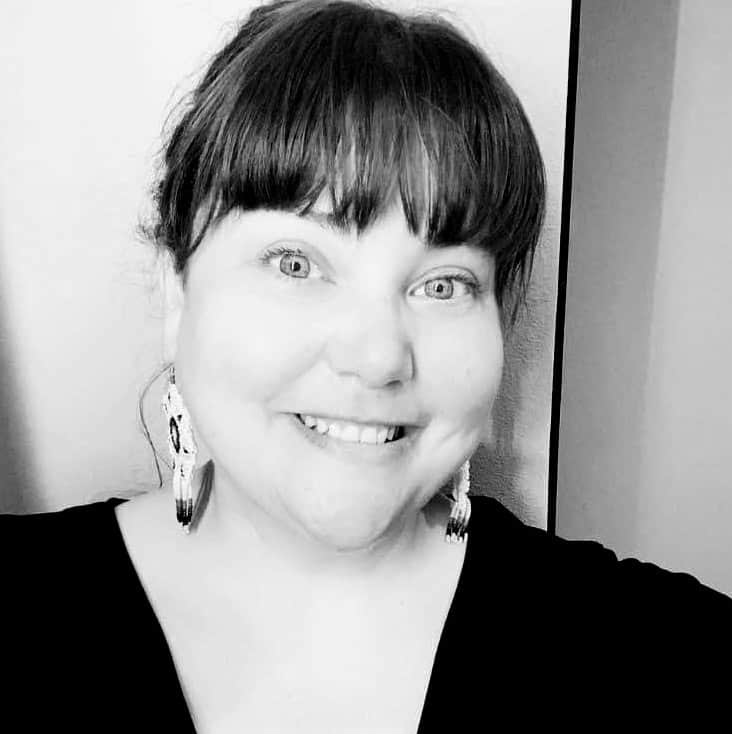
Deanna Byrd began her career with CNO’s Historic Preservation Department in 2015 as an intern. Since then, she said it has been a “non-stop journey of professional and personal growth.”
Byrd serves as a Native American Graves Protection and Repatriation Act (NAGPRA) liaison-coordinator between CNO and 80 institutions nationwide regarding the return of our ancestors and their funerary items. She leads the new Choctaw History Literacy project curriculum, manages the Historic Preservation outreach and research team, authorizes the monthly Biskinik Iti Fabvssa stories and assists with other projects.
Preserving Choctaw Culture is an essential aspect of Byrd’s life.
“Preserving our culture is important for me because my family, like many others, faced the impact of generational trauma from the boarding school era. Many traditions and knowledge were not passed down as intended,” said Byrd. “I wanted my family to reconnect and learn as a way to heal the past. I feel preservation is important so that generations ahead will continue to thrive in their identity as Choctaw people.”
According to Byrd, the most rewarding part of her job is that it brings peace to our ancestors.
“It’s a long journey, but when we finally rebury them, we know they feel the love and honor we have for them. There is nothing to describe the feeling of solace that washes over everyone,” Byrd said. “My hope is that we are able to complete our nationwide search to find our ancestors and lessen the burden on the next generation.”
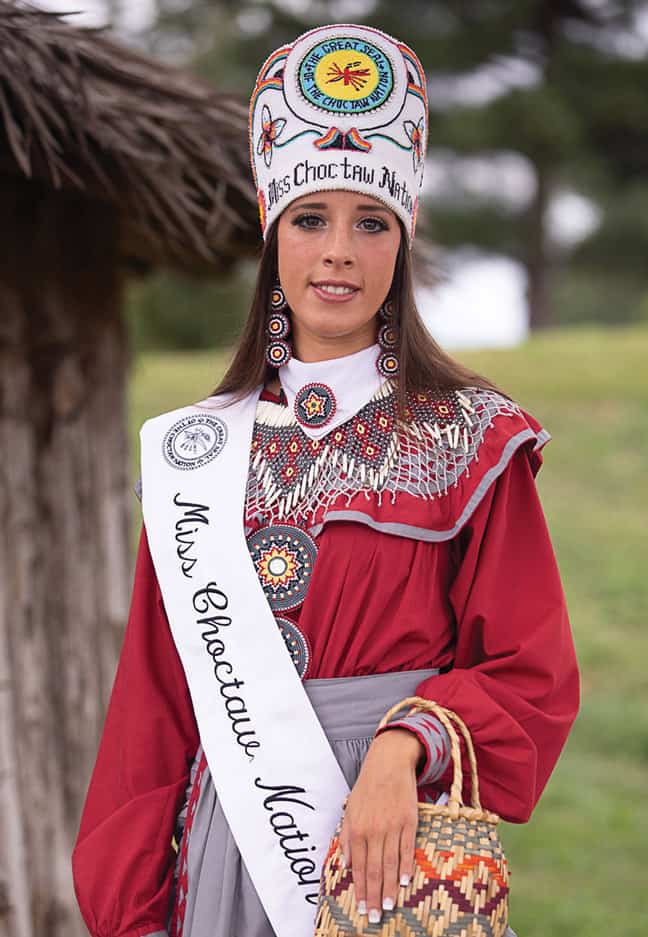
Haleigh Gibson is the 2022-2023 Miss Choctaw Nation of Oklahoma.
A graduate of Durant High School and cultural educator at the Choctaw Cultural Center, Gibson travels to other states, districts, communities and schools as an ambassador for the Choctaw Nation.
According to Gibson, the most fulfilling part of being Miss Choctaw Nation is meeting different people who share their stories with her.
“As Miss Choctaw Nation, my goal is to make a difference within my tribe, guide others to achieve their goals, touch the heart of the people everywhere I go, tell them to follow their dreams, to share our culture and show them how proud I am to be Choctaw. In addition, being the best ambassador representing the Choctaw Nation.”
Gibson has been involved with the Choctaw Nation and its culture from a young age. She is a Choctaw registered artist and has made medallions for the Chief, Councilmembers and other special projects.
According to Gibson, her mom is her biggest female inspiration.
“My mom has been the most inspirational person in my life; she has taught me to always be strong, work hard and follow my dreams but always be humble and kind. She has always told me that life is what you make of it, to always take chances, push yourself out of your comfort zone because it may open doors for you in the future,” she said.
Gibson advises young girls who aspire to be Choctaw royalty to never give up.
“Win or lose you are still a winner; you were able to stand on that stage in front of people you may or may not know and to show them how proud you are to be Choctaw,” said Gibson.
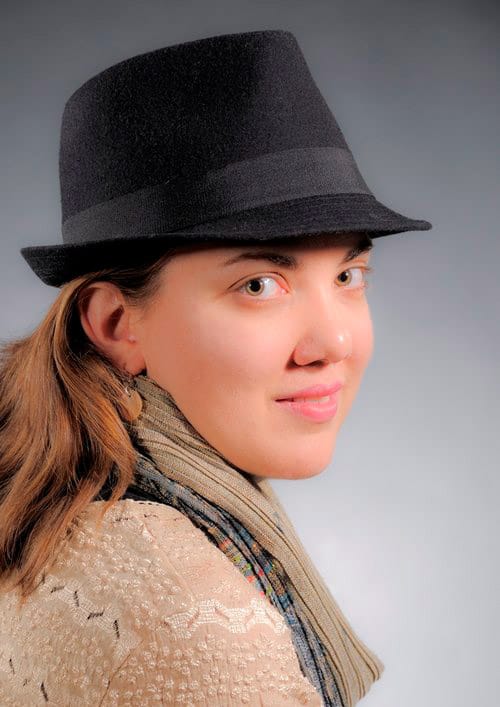
Sara Elisabeth Sawyer is a Choctaw author whose books focus on tribal heritage. Intensive research is integral to her writing, as she wants to pass on history and culture to her readers. She has been a storyteller for most of her life and published her first story, Contrast, in the Biskinik after participating in the commemorative Choctaw Trail of Tears Walk. A few years later, she was chosen for the Smithsonian’s National Museum of the American Indian Artist in Leadership Program, which ultimately led to her first book, a collection of short stories with nine other Choctaw authors, “Touch My Tears: Tales from the Trail of Tears.”
She has since published 15 historical fiction books honoring First Americans and Choctaw history and culture.
When asked what her favorite and most rewarding part of her journey being a storyteller has been, Sawyer said, “The readers. I’ve received countless messages over the years from people thanking me for writing and telling the stories that I do.” She said that knowing she is preserving and perpetuating our history and culture is the most rewarding part.
“Our ancestors walked the trail for us. They gifted us with a legacy of endurance, resilience and faith that inspires me to this day. When I think of all they went through to give the Choctaw Nation a future, it kindles the fire in me to tell their stories.”
Sawyer says her mother is her inspiration. “She has such love for our Choctaw history and culture, and tremendous heart and recognition for the sacrifices of our ancestors.” Sawyer’s mother, Lynda, is also her research partner.
She has advice for other Choctaw women or girls who want to become writers. “Tell your story in whatever way you can. Whether orally or writing it in short sentences, share your story. Then begin learning the craft of writing. Diligence and hard work come with the dream of being a writer. But it’s worth it, and I believe you can do it.”
To learn more about Sawyer, visit sarahelisabethwrites.com.
These are just a few of the thousands of Choctaw women making a difference in the world. If you have a story about an influential woman in your life, please share it with the Biskinik by emailing [email protected] or submitting it online at choctawnation.com/news/biskinik/.